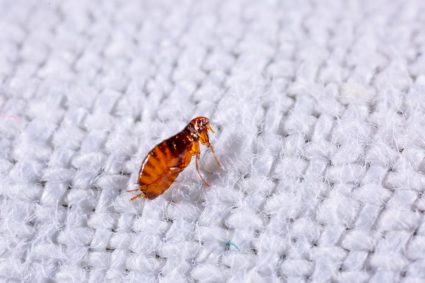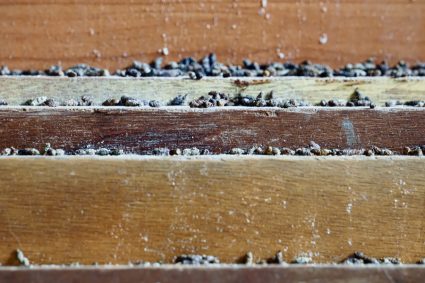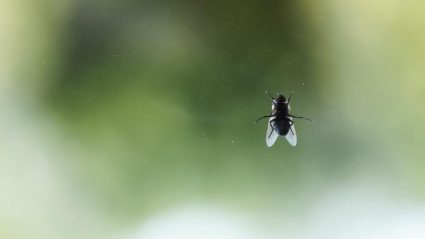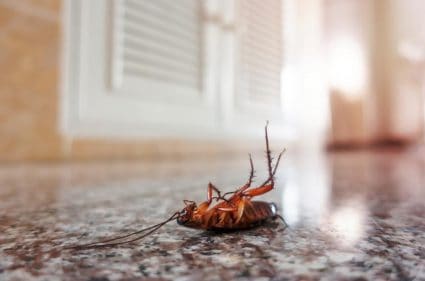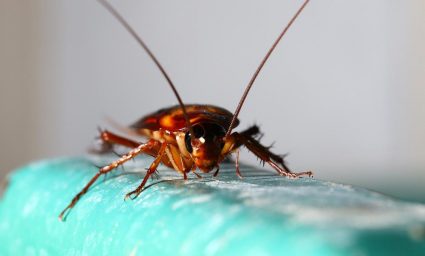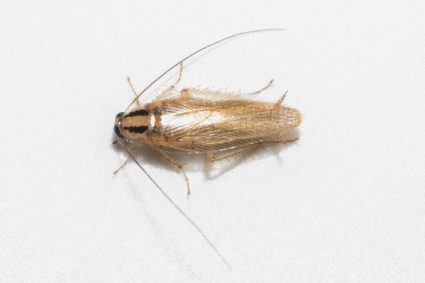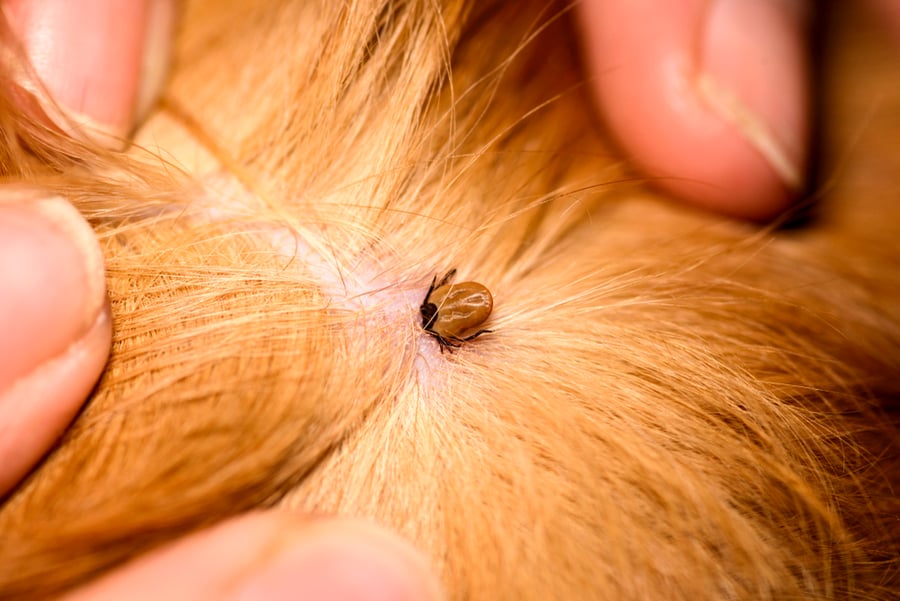
The bites that fleas and ticks leave behind are always painful and may potentially lead to major problems. They also commonly feast on the blood of animals.
In other words, these insects are very dangerous because they are the ones who spread diseases like Lyme disease. These pests get their food from the blood of their hosts, and they often take several bites over time.
The good news is that there are measures you can take to ward off the invasion of your house by these itty-bitty pests, and one of the most effective of them is the application of smell repellents, which you’ll learn more about in the following paragraphs.
There are many smells that fleas and ticks hate, and you can use each of them in different ways to keep fleas and ticks out of your home. Here are the five most effective smells:
- Lemongrass Oil
- Cedarwood
- Mint And Peppermint
- Vinegar
- Clove Oil
By using the smell of each of the things mentioned above and following the instructions stated in this article, you will be able to keep the greatest tick- and flea-free house and protect yourself, your pets, and your loved ones!
This article will discuss the five smells that ticks and fleas dislike the most, as well as how to use them to prevent fleas and ticks from entering your home and inflicting damage. Therefore, without further ado, let’s begin!
5 Scent Repellents and Ways To Use Them To Keep Ticks and Fleas Away
Many scent repellents are available, and many people use them outside as part of a plan to get rid of pests. In this section, we’ll talk about 5 of these smells and how to use them to keep fleas and ticks away.
1. Lemongrass Oil
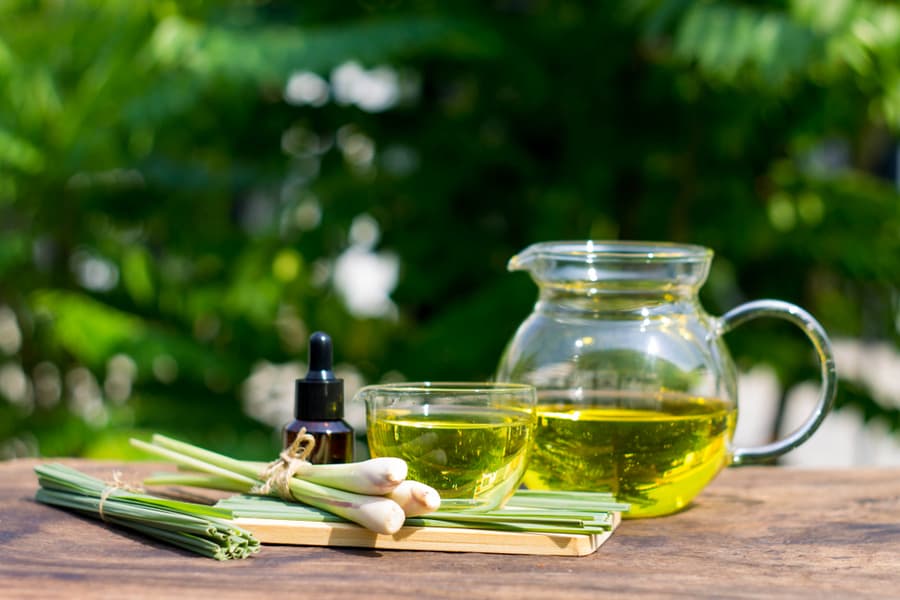
Because it is closely related to the citronella plant, lemongrass is an excellent choice for warding off insects such as ticks, fleas, and mosquitoes.
To put it another way, you may get the oil from the lemon grass, prepare it, and then spray it around your house to deter fleas and ticks from coming.
In addition, this plant, which has the aroma of lemon, may be used in soups and salads.
If you are pregnant, you should avoid eating lemongrass since it may increase the risk of having a child with a congenital disability.
2. Cedarwood Oil
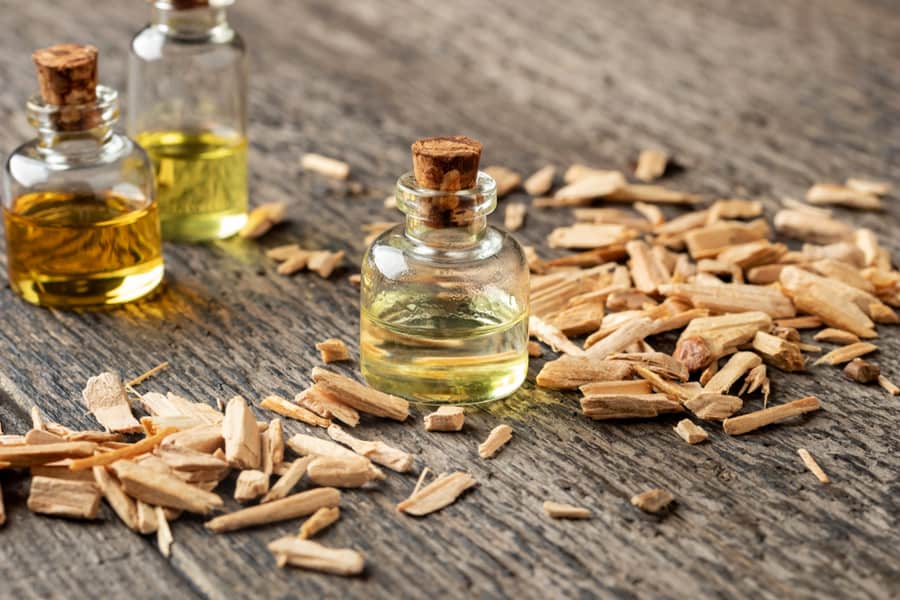
The aroma of cedarwood oil is mostly that of wood, but it also includes a hint of citrus. The scent of cedarwood has a camphorous quality to it and has balsamic overtones.
The fragrance repels fleas and ticks that cedarwoods carry with them, and they will do their best to stay away from it.
The essential oil of cedarwood may be quite effective in warding off insects, including fleas. In addition, cedarwood cannot only drive fleas away but eliminate them.
One of the major drawbacks of Cedarwood oil is that it is highly flammable.
3. Mint and Peppermint
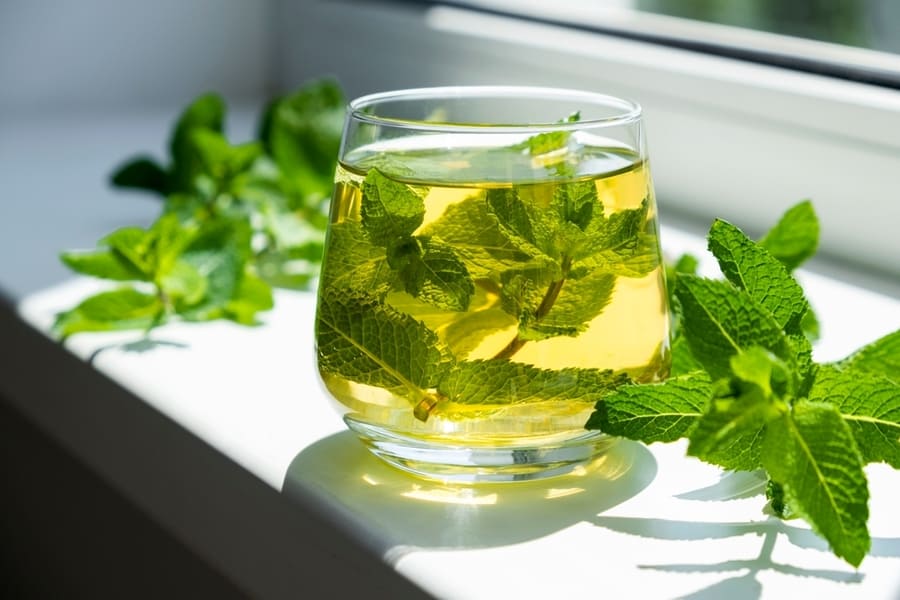
Although some individuals find the aroma of mint and peppermint refreshing, fleas and ticks hate it.
They avoid regions that smell strongly of mint. Many other animals detest the aroma of peppermint, which is fantastic news for gardeners and homeowners.
The easiest way to use mint to keep fleas and ticks away is to plant mint & peppermint around your house.
Growing mint is simple, and it may be done in containers that can be placed anywhere in the home.
Plant them near any potential openings in your home. This may work better than a spray since sprays must be administered regularly.
One of the most significant downsides of mint is that it may trigger allergic responses. When consumed in high quantities, the menthol in mint can cause heartburn, nausea, stomach discomfort, and dry mouth in animals.
4. Vinegar

Because of its strong odor, vinegar helps keep fleas and ticks at bay when used appropriately.
Most insects, such as ants, spiders, fleas, ticks, and mosquitoes, are quickly repelled by strong fragrances such as vinegar since the perfume is terrible.
Experiments have shown that white vinegar will offer the strong aroma necessary to keep fleas and ticks away. Thus, we recommend that you use it.
We recommend making a diluted combination of vinegar and water and spraying it about the cracks and crevices of your property to repel the fleas and ticks.
5. Clove Oil
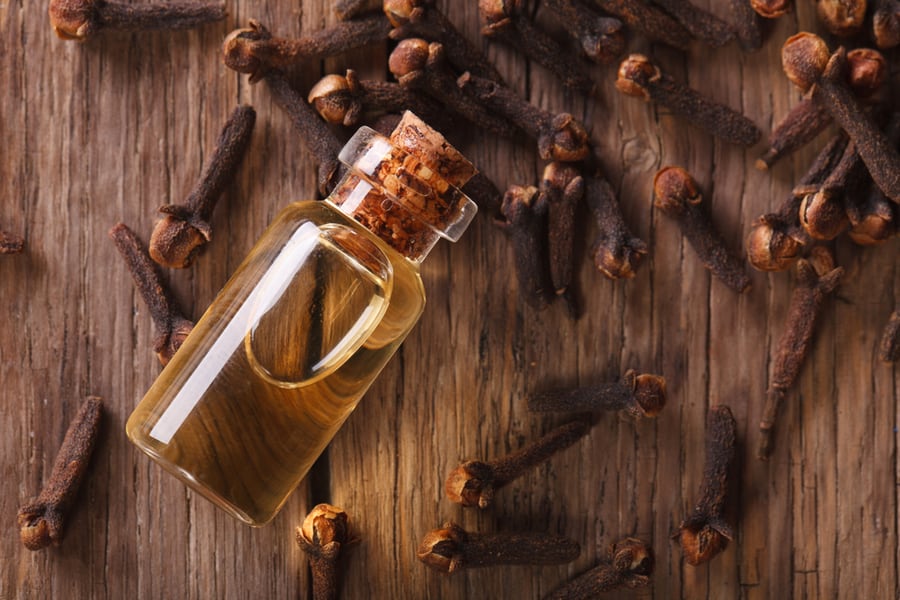
Clove oil, also known as eugenol, is extracted from clove trees native to Southeast Asia.
In other words, this clove oil, also known as eugenol, is one of the most effective techniques, and the scent is quite toxic so it may keep fleas and ticks away.
In addition, eugenol may be used as an insecticide to kill tent caterpillars and other stinging or biting insects, such as wasps, yellow jackets, hornets, and others.
High doses of clove oil, also called eugenol, are dangerous to inhale and may hurt the liver, so you have to use it in small amounts and leave the area where it is applied for a while.
Other Smells Fleas and Ticks Hate
In addition to the things mentioned above, if you are not comfortable with the ones listed above due to various factors, we can also recommend using citrus, DEET, cinnamon, lavender, and catnip because they have all been tried and tested effective.
It is up to you to choose the one that is most preferred for you.
Reasons Why You Need To Repel Fleas and Ticks?
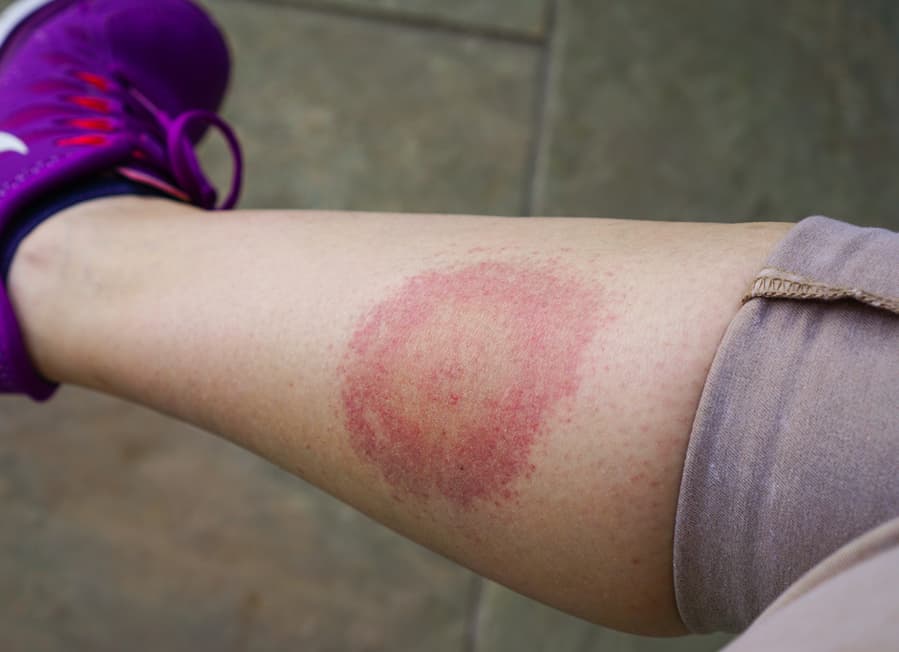
Fleas and ticks can do a lot of damage, so it’s essential to protect yourself from them as soon as possible. There are a few reasons you need to do this.
The first and most important thing to remember is that fleas and ticks are known to harbor various diseases, some of which can be passed on to humans.
These diseases include Lyme disease, Rocky Mountain spotted fever, ehrlichiosis, babesiosis, and bartonellosis, to name just a few. Because these illnesses can cause serious health problems, it is essential to take precautions to avoid getting them.
The second reason is that fleas and ticks may cause illness in your pets. Fleas are famous for transmitting internal parasites like tapeworms to dogs and cats and causing anemia in these animals.
When you take measures to ward off these pests, you are protecting yourself and your family from harm and safeguarding your animals.
However, one way to keep ticks and fleas away is to keep your pets clean and use the most effective insect repellents, which we discussed earlier in this article.
Conclusion
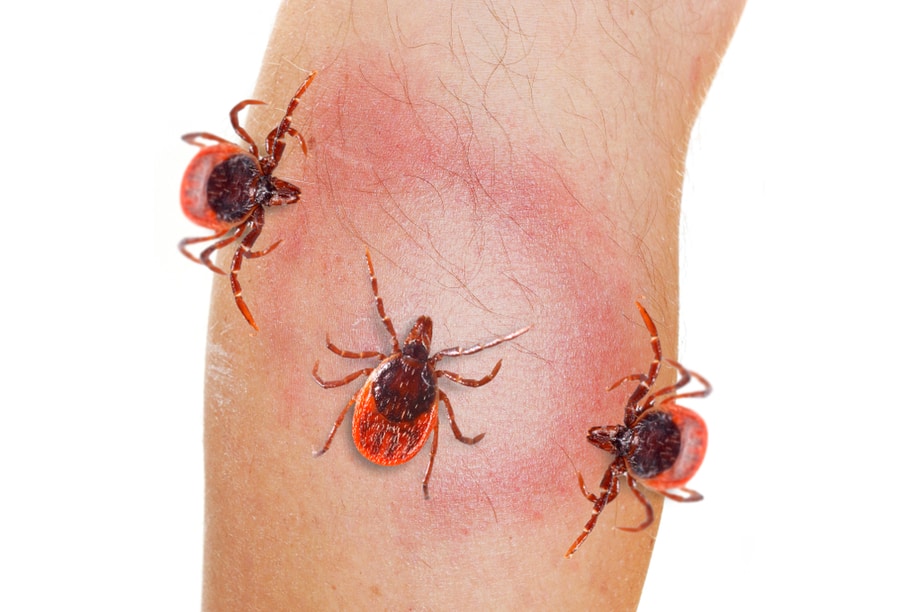
Fleas and ticks are known as “vectors” because they are responsible for transmitting various diseases. These diseases include Lyme disease, Rocky Mountain spotted fever (RMSF), Southern tick-associated rash illness (STARI), ehrlichiosis, and tularemia.
In other words, fleas and ticks hate some smells, which we discussed in this article. This is because they use their sense of smell to find food and talk to other animals. So if fleas or ticks don’t like a certain smell, it can make them very hostile toward that smell.
If you read this article carefully, you’ll see several things to remember when trying to keep fleas and ticks away from your home, your pets, and yourself.
Following the instructions in this article may prevent you and your dogs from becoming ill and requiring medical attention. Thanks for stopping by; see you later!
Frequently Asked Questions
What Kills Ticks and Fleas Instantly?
There are a few substances that will quickly kill ticks and fleas:
One option is to apply a pesticide containing pyrethrin or permethrin, which operates by paralyzing the insects.
Another option is to employ an insect growth regulator, such as methoprene or pyriproxyfen. These products prevent the insects from reproducing, resulting in their death.
You may also use diatomaceous earth, eucalyptus oil, neem oil, bleach, and alcohol. All of this is effective in killing fleas and ticks.
What Kills Ticks on Dogs Instantly?
We suggest you manually remove any ticks already attached to your dog if you find one or more ticks on your dog’s skin.
If you want to kill a tick immediately, you may submerge it in original Listerine or rubbing alcohol.



